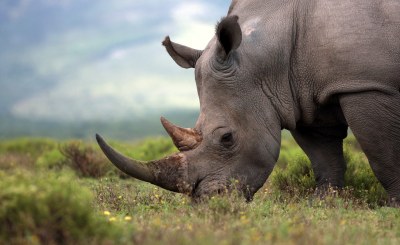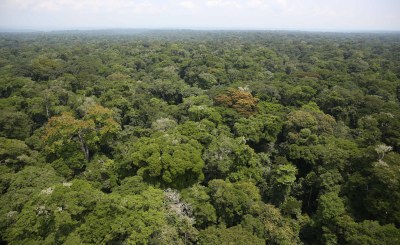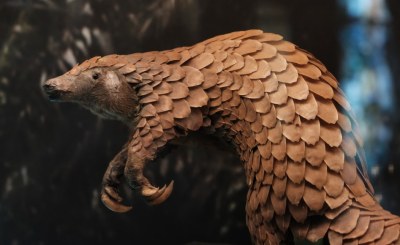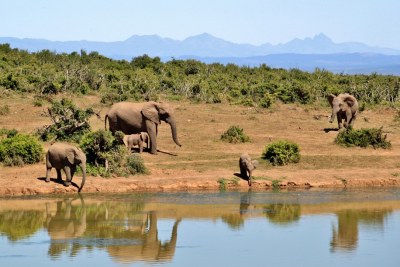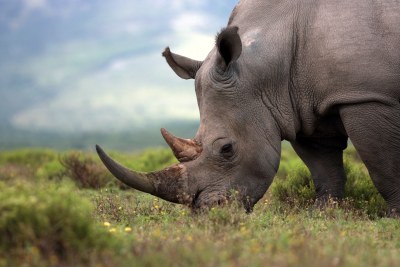-
Nigeria: Inside Nigeria's Shocking Wildlife Crimes and How Culprits Escape Justice
Premium Times, 4 March 2022
Our analysis of wildlife crimes data, supported by numerous interviews, finds evidence of systematic failure by Nigerian law enforcement and the judicial system to hold wildlife… Read more »
-
Africa: World Wildlife Day 2022 - '1.6 Trillion Wild Animals Killed Annually'
Premium Times, 3 March 2022
The World Animal Protection calls for stringent measures to enact policies to protect the African wildlife from cruelty and exploitation. Read more »
-
Congo-Kinshasa: Protecting Wildlife and Indigenous Peoples' Livelihoods in DRC #AfricaClimateCrisis
FAO, 3 March 2022
The Mbuti people at the heart of wildlife management Read more »
-
Nigeria: NCF Marks World Pangolin Day, Calls for Urgent Conservation Actions
This Day, 22 February 2022
The Nigerian Conservation Foundation (NCF) has called on Nigerians to take useful and urgent actions to conserve the remaining species of Pangolin in the country. Read more »
-
Nigeria: Usage of Nigeria As Transit for Pangolin Smuggling Worries Customs
Vanguard, 13 October 2021
The Nigeria Customs Service, NCS, has decried the usage of Nigeria as a transit route for the smuggling of Pangolin scales and claws, even as the Service in collaboration with the… Read more »
-
Nigeria: Again, Customs Intercepts N3.2bn Pangolin Scales, Elephant Tusks in Lagos
Leadership, 10 February 2022
The comptroller-general of the Nigeria Customs Service (NCS), Col. Hameed Ali, yesterday, said officers of the Strike Force Unit intercepted pangolin scales and Elephant tusks… Read more »
-
Nigeria: Elephants and the Dwindling Populations - Any Hope for Recovery?
This Day, 7 September 2021
There were recent publications on the interception of elephant ivory (846 kg) and pangolin scales (7.1 tonnes) and claws (4.6kg), worth USD54 million (about N22 billion) in Lagos… Read more »
Inside Nigeria's Shocking Wildlife Crimes and How Culprits Escape
Nigeria has for years failed to hold wildlife traffickers and poachers accountable for their crimes despite federal and state laws that criminalise the killing and trading of protected species, an investigation by Premium Times and Mongabay has found.
In many cases, wildlife poachers and traffickers were not arrested or traced; most of those caught were not prosecuted, and the few charged to court were asked to pay small fines or serve short terms. Many returned to their businesses after, the report uncovered.
At the ports, traffickers who ferried tens of thousands of tonnes of elephant tusks, rhino ivory and pangolin scales worth several millions of dollars were mostly never traced. Of 63 total interceptions collated between 2010 and 2021, suspects in 52 of the cases were either not arrested or charged to court. Many cases were listed to be under "investigation" for years.
No suspect, amongst them Nigerians, Chinese, Malians, Guineans, and Ivorians, served a jail term over the last decade for illicit trafficking of animals. The government said it obtained four convictions in the last 11 years - three were awarded small fines.
The global illicit wildlife trade has grown rapidly in the last decade, pushing some species close to extinction. The World Bank estimates the trade at U.S.$7.8 billion to U.S.$10 billion a year, making wildlife crime the fourth most lucrative illegal business after narcotics, human trafficking, and weapons. Nigeria has emerged as a top source and transit country for illicit trade in ivory and pangolin scales, with smugglers attracted by its porous borders, corruption level, transport links to Asia, and poor law enforcement.
InFocus
-
Biodiversity is a term used to describe the enormous variety of life on Earth. It can refer to all of the species in one region or ecosystem and includes every living thing - ... Read more »
-
African countries are making great strides in preserving wildlife, and the United States is committed to supporting them, according to a press release from ShareAmerica, the Read more »
